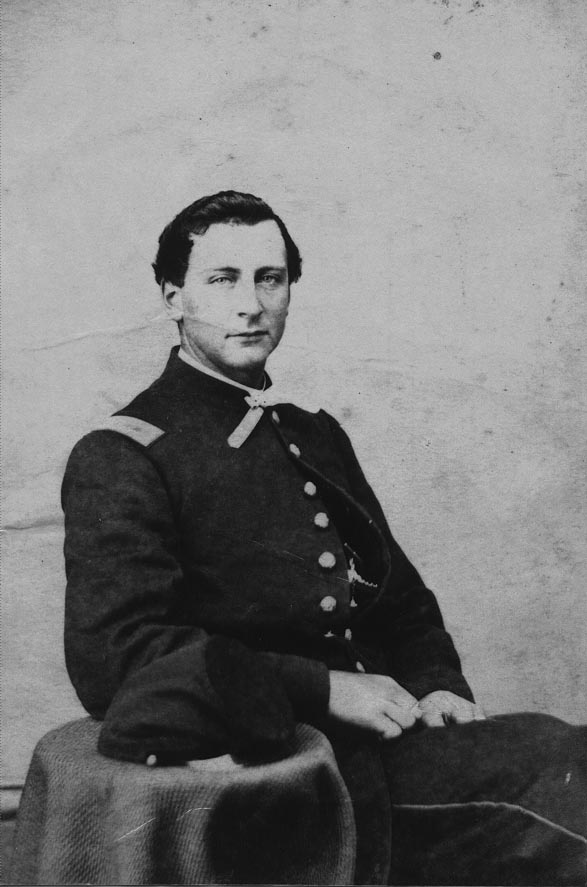|
First Lieutenant IRA A. GRAHAM |
||
|
First Lieutenant IRA A. GRAHAM, was born in Berlin, Conn., August 14th, 1843. Before the war he had resided in Deerfield, Mass., engaged in farming, but the President’s call for “Three Hundred Thousand More,” in 1862, found him in Durham, Conn. He at once enlisted in Capt. Gibbons’ company, then being recruited in Middletown, and served with the 14th faithfully and well all through the war. Enlisting as a private, and a stranger to the captain, he speedily became a non-commissioned officer, and July 21, 1864, was commissioned as second lieutenant. January 3, 1865, he was promoted to a first lieutenancy. At the second battle of Hatcher’s Run, Virginia, March 25, 1865, he received a gun-shot wound through the right breast. May 31st, 1865, he was mustered out of service with the regiment. He then returned to Durham and endeavored to work in the tin-shop there, but finding his strength unequal to the task, forsook it and went again to Deerfield as a farmer. But the effects of the Hatcher’s Run wound upon his lungs told upon him with more and more severity, and finding himself quite ill, he returned once more to Durham, where, after much suffering, he died, July 16, 1869. His funeral was held in Durham, Sunday, July 18th. A delegation from the Middletown Post, Grand Army of the Republic, were present, and the Middletown Masonic Lodge, of which he was a member, turned out and performed their impressive service on the occasion. Rev. Mr. Taylor of the South Church, Middletown, preached a memorial sermon. Appropriate resolutions of respect to his memory were passed by his Masonic brethren August 4th, 1869, and at the annual re-union of the members of his regiment, held that year at Bridgeport, Sept. 17th. Some loving friend has also published a few memorial verses that tell the story of the triumph over suffering and death of the soldier who had served all through the long and bloody war, to die at last by lingering disease in his own fair meadow lands of Durham. From this memorial we learn that though his earthly ties were strong and hard to sunder, he in dying was vouchsafed a gleam “Of heavenly glories from afar.” that led him to depart in peace, urging his friends to live so as to meet him hereafter. |
||
